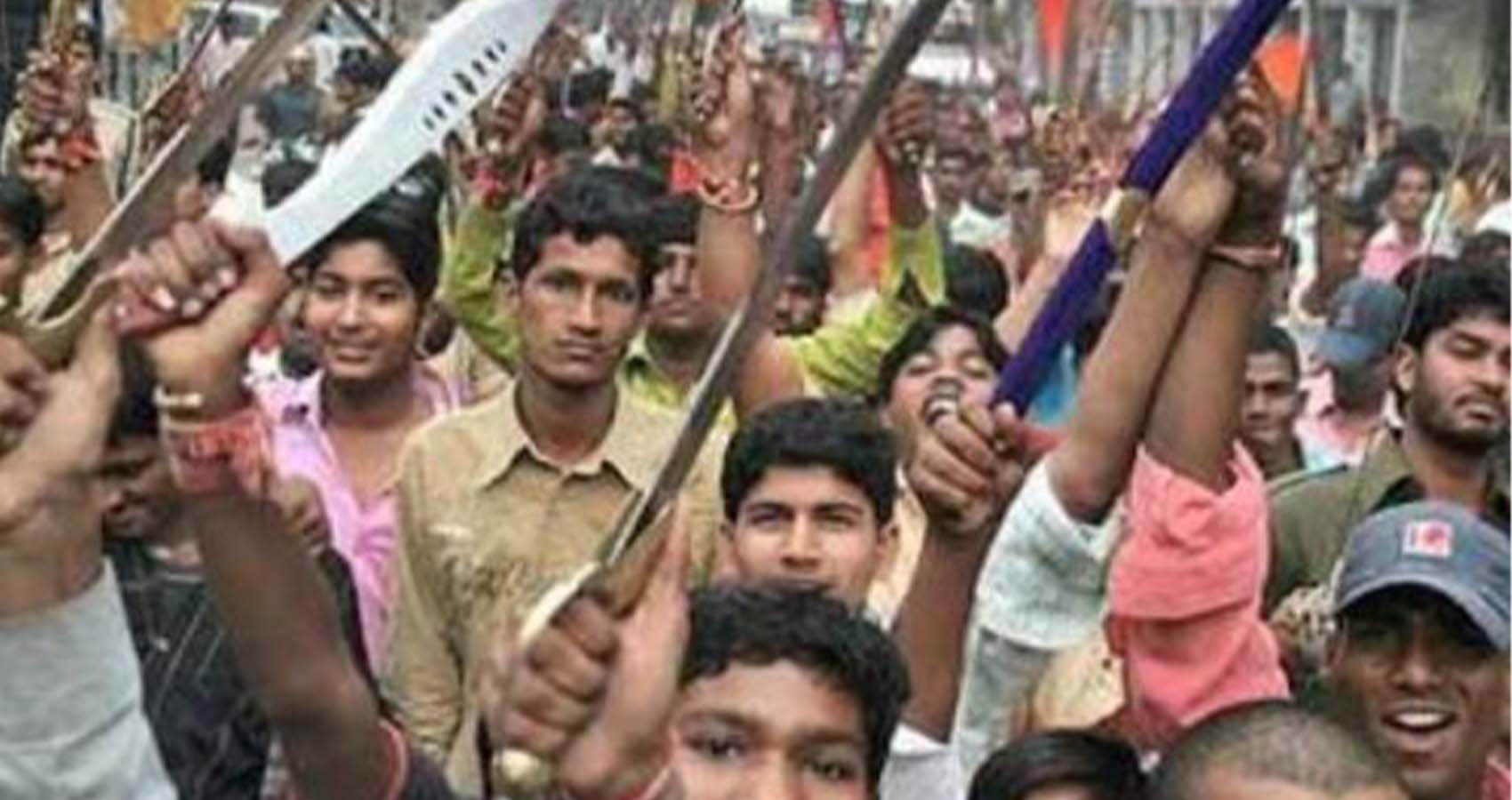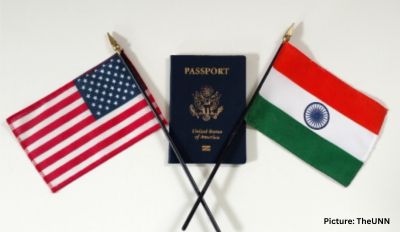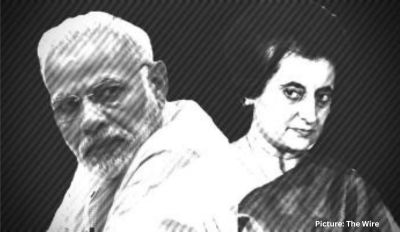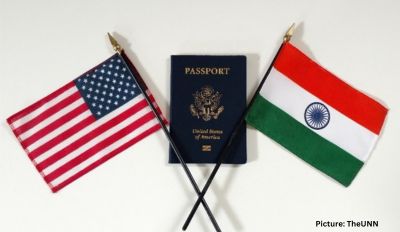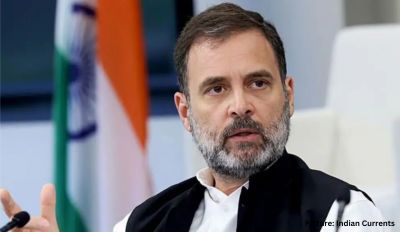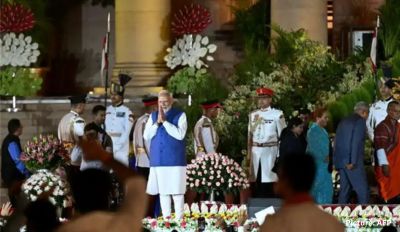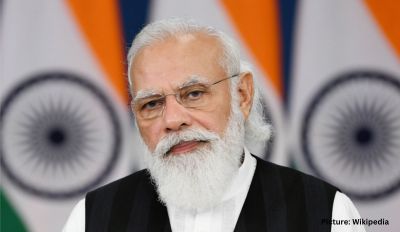When the british withdrew from the Indian subcontinent in 1947, paving the way for the independence of the newly partitioned nations of India and Pakistan, the Muslims of the region had a choice. They could resettle in Pakistan, where they would be among a Muslim majority, or remain in India, where they would live as a minority in a majority-Hindu but constitutionally secular state.
For Shah Alam Khan, whose great-grandparents were among the roughly 35 million Muslims who opted to live on the Indian side of the Radcliffe Line in the aftermath of Partition, his family’s decision was in many ways a political gamble. “They didn’t want to go to a theocratic state,” Khan told me from his home in Delhi. Indeed, when Pakistan finally adopted a constitution, nine years after Partition, it enshrined Islam as the state religion. For his family, the promise of a pluralist India, as envisaged by the country’s founders, trumped the warnings of the pro-Partition Muslim League (which went on to become the party of Pakistan’s founders) that a Muslim minority would inevitably be subordinate to the Hindu majority.
Seventy-five years later, those warnings have gained a new prescience. Nominally, India remains a secular state and a multifaith democracy. Religious minorities account for roughly 20 percent of the country’s 1.4 billion people, who include about 200 million Muslims and 28 million Christians. But beneath the country’s ostensible inclusivity runs an undercurrent of Hindu nationalism that has gained strength during the eight-year rule of Prime Minister Narendra Modi. The concern shared by many among the country’s religious minorities, as well as by more secular-minded liberals within the Hindu majority, is that the country’s secular and inclusive ethos is already beyond repair.
Muslims and Christians alike have faced a surge in communal violence in recent years. A raft of new laws has reached into their daily lives to interfere with the religious garments they wear, the food they eat, where and how they worship, and even whom they marry. Many of the Indian journalists, lawyers, activists, and religious leaders I’ve spoken with for this article say that the institutions on which the country once relied to keep this kind of ethnic supremacism in check—the courts, opposition parties, and independent media—have buckled.
To Khan, it feels as though the India he has inherited is gradually becoming another version of the theocratic state his family turned away from all those years ago. “They were promised a secular nation,” he said. For them, and for the country’s religious minorities today, “the unmaking of secular India is a betrayal.”
This ideal of a pluralist, secular India is popular not only among its religious minorities. A 2021 study conducted by the Pew Research Center found that by a wide margin, Indians of all faiths consider religious tolerance an essential part of what it means to be “truly Indian.” This civic value is as old as the country itself: Jawaharlal Nehru, India’s first prime minister, rejected any concept of the nation as Hinduism’s answer to Pakistan. His India would not be “formally entitled to any religion as a nation,” he said, but a placewhere all faiths could coexist and be celebrated equally.
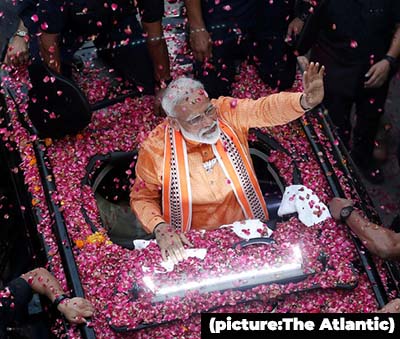 That founding ideology, however, has long been disputed by Hindu nationalists. “To be a Hindu means a person who sees this land, from the Indus River to the sea, as his country but also as his Holy Land,” wrote the politician and activist Vinayak Damodar Savarkar in his 1923 book, Hindutva: Who Is a Hindu? (Hindutva, meaning “Hindu-ness,” has become shorthand for Hindu nationalism itself.) In Savarkar’s view, only those who regard India as both their country and their sacred Hindu homeland could be truly Indian. While Christians and Muslims could fulfill the first requirement, of patriotism, they would never be able to achieve the second. “Their holyland is far off in Arabia or Palestine,” Savarkar wrote. “Consequently their names and their outlook smack of a foreign origin. Their love is divided.”
That founding ideology, however, has long been disputed by Hindu nationalists. “To be a Hindu means a person who sees this land, from the Indus River to the sea, as his country but also as his Holy Land,” wrote the politician and activist Vinayak Damodar Savarkar in his 1923 book, Hindutva: Who Is a Hindu? (Hindutva, meaning “Hindu-ness,” has become shorthand for Hindu nationalism itself.) In Savarkar’s view, only those who regard India as both their country and their sacred Hindu homeland could be truly Indian. While Christians and Muslims could fulfill the first requirement, of patriotism, they would never be able to achieve the second. “Their holyland is far off in Arabia or Palestine,” Savarkar wrote. “Consequently their names and their outlook smack of a foreign origin. Their love is divided.”
Modi’s own Hindutva credentials run deep. Before he went into mainstream politics with the Hindu-nationalist Bharatiya Janata Party, he cut his teeth as a member of its allied paramilitary organization, the Rashtriya Swayamsevak Sangh, or RSS. After his landslide reelection victory in May 2019, one of the first things he did with his new mandate, in August of that year, was to fulfill a long-standing demand of the RSS by revoking the special autonomous status of Jammu and Kashmir, India’s sole Muslim-majority territory (over which Pakistan also claims sovereignty).
That same month, the northeastern BJP-led state of Assam published a national registry that left nearly 2 million people, many of them Muslim, off the list, casting their Indian citizenship into doubt. Perhaps the most contentious decision came at the end of the year, when Modi’s government pressed through a new law granting non-Muslims from Afghanistan, Bangladesh, and Pakistan the right to seek fast-tracked citizenship in India. Critics likened the move to a religious test for citizenship, and warned that it would open the door to additional forms of legal discrimination against Muslims.
These events loom large in Indian politics, but when I spoke with members of India’s Muslim and Christian communities about how life in India has changed under Modi’s rule, they rarely came up. People attested instead to the smaller, often more insidious ways in which the experience of India’s religious minorities has been altered.
To belong to a religious minority in India today is to feel “there is no future,” an Indian Muslim from Kashmir, who spoke on condition of anonymity for fear of government retaliation, told me. That sentiment is echoed by Ajit Sahi, a former journalist who left India for the United States days after Modi’s reelection. “I have friends who are desperate to get out,” Sahi, a secular-inclined Hindu who now serves as the advocacy director of the Indian American Muslim Council in Washington, D.C., told me. “There is no future for somebody like me back in India.” Nandita Suneja, who moved from her native Delhi to Australia in 2019, told me that the communal tensions made her Hindu family’s decision to leave much easier. She didn’t want to raise her daughter in an “atmosphere of stifling freedom and hate.”
For Indian Muslims, in particular, the situation is dire. During the recently passed holy month of Ramadan, they saw their houses and shops bulldozed, their businesses boycotted, and their religious gatherings heckled by Hindu-nationalist mobs. Open calls for genocide against Muslims have become commonplace, as have violent clashes and lynchings. Although the authorities generally avoid the appearance of explicitly endorsing these kinds of actions, they rarely go out of their way to condemn them. A recent open letter signed by more than 100 former civil servants accused the Indian government of being “fully complicit” in the subordination of the country’s religious minorities as well as in the undermining of the country’s constitution.
Shah Alam Khan, who teaches orthopedic medicine at Delhi’s All India Institute of Medical Sciences, considers himself relatively privileged compared with most Indian Muslims, who tend to be among the country’s poorer and more marginalized citizens. But even for him, he says, the country’s majoritarian turn has forced a change in his quotidian habits. He thinks twice before using the greeting Assalamualaikum, or using any other obviously Islamic phrase, in a crowded public space. Asked for his name, he typically offers only Shah, because it’s more common and less identifiably Muslim than his surname.
This type of self-surveillance has affected other members of his family. “Whenever I used to go meet my mom, she used to give me food,” Khan said. “But ever since [Modi] came to power, she stopped giving me that food, because a large part of that food used to be meat.” Cows are considered sacred to the Hindu faith, and their slaughter has been proscribed in most states—a rule often enforced by vigilante mobs. If Khan were stopped by a hostile crowd on suspicion of carrying beef, his mother feared, he could be arrested, even lynched.
Akif—who asked to be identified by only his first name for fear of persecution—grew up in what he describes as comfortable circumstances in Aligarh, southwest of Delhi. But that comfort has slipped in recent years. He won’t leave home wearing traditional Islamic attire if he is going to an unfamiliar neighborhood. His wife, who works in academia, has been asked by colleagues about why she wears a hijab, the Muslim headscarf, and why she doesn’t work at an Islamic institution. Some of the most incendiary comments, Akif says, have come from people he considered friends.
These restrictions, compounded by public debates at the local, state, and even national levels over whether Muslim students should be allowed to wear headscarves in school or how loudly mosques should broadcast the call to prayer (known as the azaan), have left many Indian Muslims feeling unwelcome in their own country. “Initially, they came for our dietary habits, now the azaan,” Rana Ayyub, an Indian Muslim journalist and author, told me. “Every day you wake up and it’s like, ‘Okay, what part of our identity are you going to attack today?’”
Indian Christians face similar hostility. Attacks on Christians have been rising steadily since 2014, and 2021 was the most violent year on record for the community: The United Christian Forum, an ecumenical organization based in Delhi, reported a tally of more than 500 violent incidents—an 80 percent increase over the previous year. A human-rights lawyer who works on minority-rights and religious-freedom cases, who requested anonymity in order to speak candidly about their work, told me that most of these incidents originate with Hindu-nationalist mobs, which descend on religious gatherings at churches and in homes to accuse those involved of forcing Christianity upon unsuspecting Hindus, in violation of the country’s anti-conversion laws. In the violence that ensues, pastors have been beaten, churches vandalized, and religious schools attacked.
In many cases, rather than intervene to maintain public order, police officers join the mobs, ready to arrest the suspected Christian proselytizers. In one incident, on April 14, dozens of worshippers were gathered at a church in the state of Uttar Pradesh to observe Maundy Thursday when a mob showed up with police. “Everyone was arrested,” the lawyer told me. “‘Who are you converting? Everyone is detained.’ It was a little bizarre.” That case is still pending.
Hindu-nationalist groups and BJP lawmakers claim that forced conversions are rampant in the country. But there is little evidence for this. None of the arrests have yet resulted in a single conviction, A. C. Michael, a former member of the Delhi Minorities Commission and the national coordinator of the United Christian Forum, told me. But if the real purpose of the harassment is to intimidate members of a religious minority, it has already had its desired effect. “Earlier, we were very proud to display our faith, like wearing a cross or, if we were traveling, we would say our prayers aloud,” Michael said. “All that has now stopped.”
This is so far from the India that Nehru’s vision promised that Muslims and Christians now have little expectation that the state will protect not just their rights but their very lives. “The year I left India, in 2015, there were several attacks on churches in Delhi,” Dominic Emmanuel, a former spokesperson of the Delhi Catholic Church who is now based in Vienna, Austria, told me. When he and his fellow congregants staged a protest against attacks within their church compound, they were arrested.
Modi’s ruling bjp has no incentive to change course. In March, the party won a resounding victory when it held on to power in Uttar Pradesh, where the government is now led by Yogi Adityanath, a hard-line nationalist and former monk widely seen as Modi’s likely successor. The main opposition party, the Indian National Congress, was once the standard-bearer of secularism in India, but it has failed to mount a strong defense of the country’s religious minorities. Analysts I spoke with attribute part of that failure to the opposition’s fears of alienating a Hindu majority that has been swayed by Hindutva ideology.
If the political system is no longer a check on majoritarian rule, neither is the legal system. Just as the authorities fail to protect minorities from communal violence—or even participate in the violence themselves—the legal system fails to hold officials to account. Worse, a series of draconian and discriminatory laws have recruited both police and courts to efforts to silence government critics and advocates for India’s religious minorities. (The Indian government did not respond to requests for comment.)
At grave personal risk, several Indian journalists have shed unflattering light on Modi’s majoritarian rule. Some have been jailed for their reporting. One is Siddique Kappan, who was charged with sedition and conspiracy to incite violence for trying to report on the gang rape and murder of a 19-year-old Dalit woman. (Dalits, pejoratively known as the “untouchables,” are at the bottom of India’s caste system.) Others, like Ayyub, have been hit with spurious fraud and money-laundering charges; their cases are laborious and expensive to defend. The BJP-controlled state does not need to worry about time or money, so the process is the punishment.
“There is no one left,” Ayyub said, noting that as the country’s high-profile figures in politics, law, and the media have been largely silenced, so, too, have celebrities in India’s entertainment industry. The most prominent example is Shah Rukh Khan, one of Bollywood’s biggest stars, as well as one of the country’s most influential Muslim figures, whose films portray India’s pluralism at its best. Last year, the actor’s son was embroiled in allegations of drug use—a charge seen by some as part of a broader effort by the government to crack down on its critics in the film industry, as well as an attempt to discredit Khan personally.
Khan not only embodies that anathema to the BJP of being a Muslim married to a Hindu, but he has also spoken out against religious intolerance in the country. By attacking a personality like Khan, Ayyub said, the government’s message was clear: “If it can happen to Shah Rukh Khan, the biggest superstar,” she said, “imagine what happens to a regular Muslim without the access.”
That Modi feels emboldened enough to take on a movie star like Khan is telling. Modi “is popular because of the fact that he’s a bigot,” Aakar Patel, the chair of Amnesty International’s India Board and the author of The Price of the Modi Years, told me. “He is seen as somebody who has put Muslims in their place.” Despite rising inflation and high unemployment, as well as the government’s mishandling of the coronavirus pandemic and democratic backsliding, the prime minister still enjoys widespread popularity with his own BJP-supporting constituency. For most Indians, he is an Indian success story.
“Modi has been a real son of the soil for young Indians and they see themselves in him,” Vivan Marwaha, a researcher in emerging markets and the author of What Millennials Want, told me. If the son of a tea seller can become prime minister and command an international stage, the logic goes, so could they. “His appeal is in his personality,” Marwaha added. “Foreign leaders have to listen to him speaking in Hindi. He sells out stadiums in New York, London, and Sydney.”
Many Hindu Indians also appear comfortable with Modi’s ethnonationalist aims, despite the outbreaks of communal violence. “The whole religious agenda is not seen as something radical because, at the end of the day, something like 80 percent of India’s population is Hindu,” Marwaha said. “People just believe, ‘Well, why can’t they just live with our rules? Why can’t they not eat beef? Why does the azaan need to be played in public places?’ Things like that.”
If no check to the Hinduization of state and society comes from within India, then what about from without? So far, India’s international allies have shown little inclination to call Delhi out over the treatment of its religious minorities, largely because they see India as too important a partner to alienate. This is especially true of the Biden administration, which counts its relationship with India as a strategic asset in its Indo-Pacific strategy.
When Washington has voiced concern about the treatment of religious minorities in India, it has done so in private. That could be starting to change. In April, at a joint press conference with the Indian foreign and defense ministers, U.S. Secretary of State Antony Blinken noted that the United States is monitoring the rise of human-rights abuses in the country. That same month, the U.S. Commission on International Religious Freedom, a federal body created by Congress in 1998, designated India as a country of “particular concern” for the third year in a row in its annual religious-freedom report, placing India alongside countries such as Afghanistan, China, Iran, Russia, and Pakistan. In India’s case, the commission recommended imposing targeted sanctions against those responsible for severe religious-freedom violations.
Although the commission has no power to enforce such measures, its condemnations may have some cumulative effect. “When your own agency is recommending a policy move for three years in a row, it becomes harder to ignore with each passing year,” Pranay Somayajula, an advocacy and outreach coordinator at Hindus for Human Rights, a group based in Washington, D.C., told me.
As menacing as the persecution of religious minorities has become, for most Indians, emigrating is not an option. Only about 5 percent of citizens have a passport, and those who leave the country tend to be among the wealthiest. “If we decide to abandon the ship, what will happen to people who do not have the resources to go out? That is a very big concern,” Akif told me. As the last of his siblings still living in India, he can’t bring himself to leave his parents behind.
For Shah Alam Khan, remaining is a point of principle too. Because he spent several years working as a doctor for the National Health Service in Britain, he could emigrate there. But doing so would hand the nationalists who don’t see him as a true Indian a win. “It’s like running away. I won’t do that,” he said. “This is my country at the end of the day.” (Yasmeen Serhan is a staff writer at The Atlantic.

